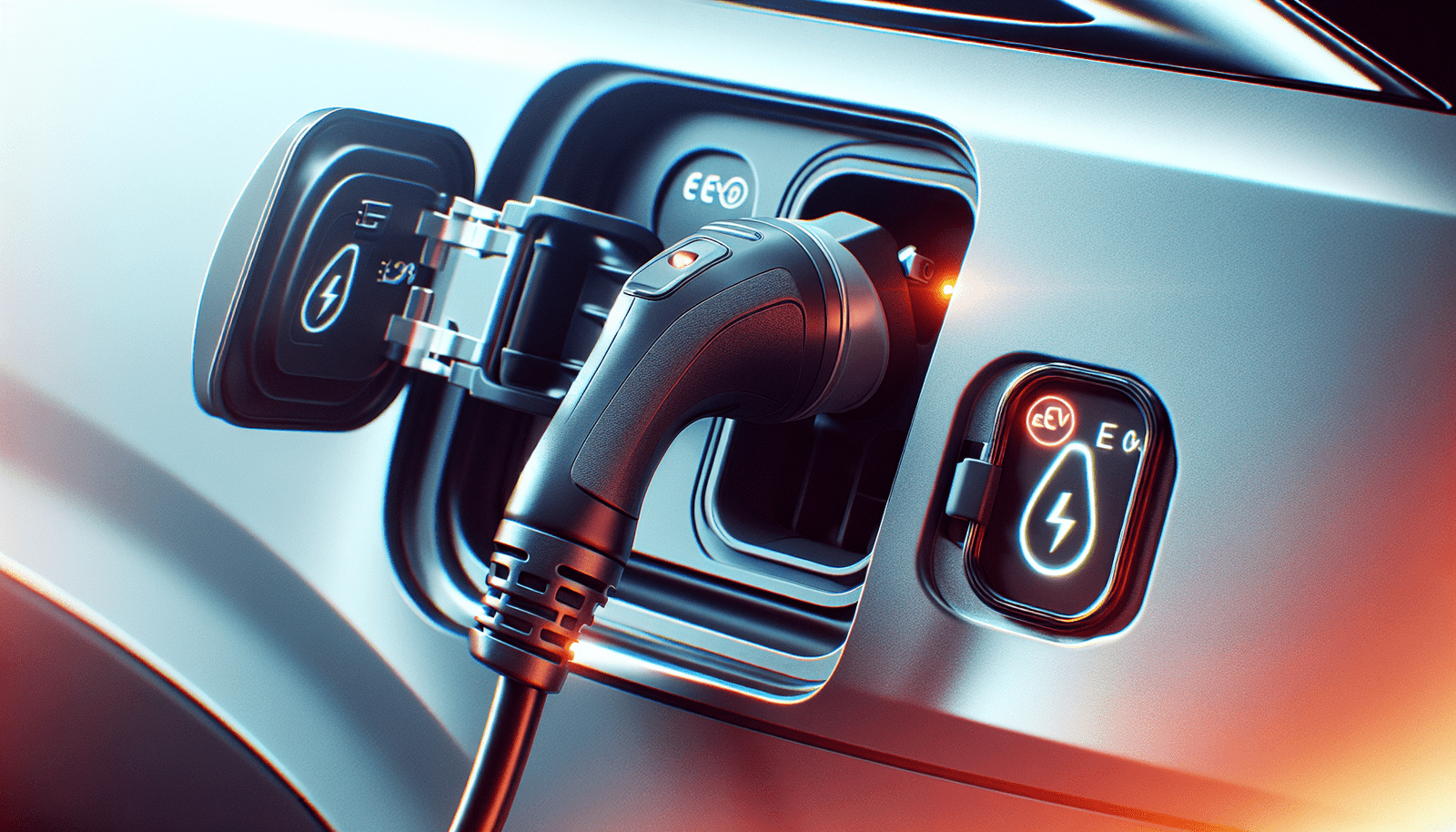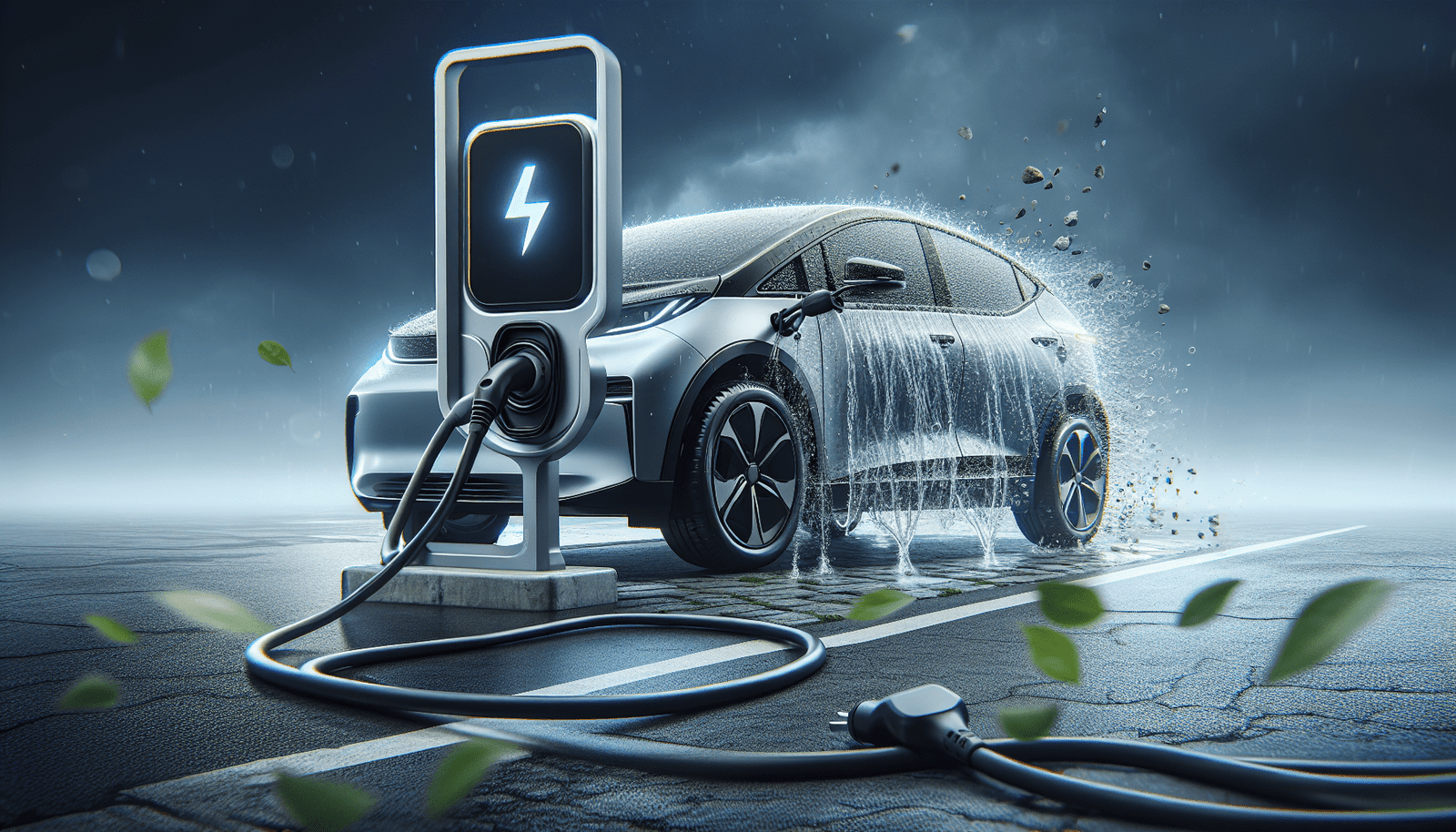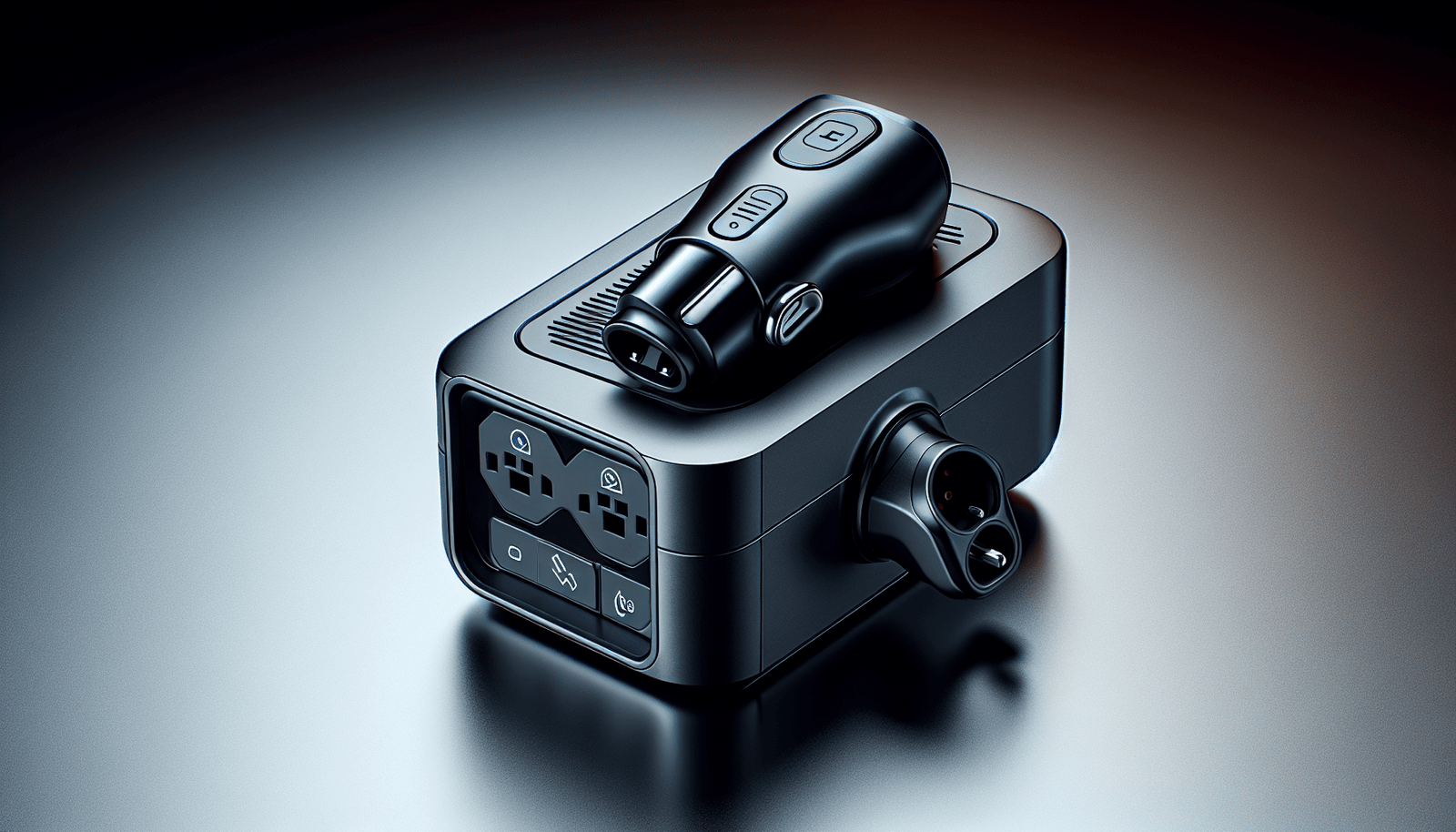Are you considering getting an electric vehicle and need to install a wall-mounted EV charger at home? Look no further! In this article, we will provide you with all the information you need to know about wall-mounted EV charger installation. From frequently asked questions to product reviews, we’ve got you covered. Our content is written in a friendly and approachable tone, making it easy to understand even if you’re not well-versed in technical jargon. And to top it off, we have included the latest SEO insights to ensure that you get the most relevant and helpful information. So, why wait? Read on and get ready to power up your electric vehicle effortlessly.
Understanding EV Charging
Electric vehicle (EV) charging is an important aspect to consider when owning an electric vehicle. It is crucial to understand the different levels of EV charging and the significance of fast charging for electric vehicles. Additionally, there are benefits to home charging over public charging stations.
Differentiating EV Charging Levels
EV charging is categorized into three different levels: Level 1, Level 2, and Level 3 (also known as DC fast charging). Level 1 charging is the most basic and uses a standard household electrical outlet to charge your EV. This level provides a slow charging speed and is typically used for overnight charging.
Level 2 charging is a step up from Level 1 and requires a dedicated charging station installed at your home. These charging stations provide a higher charging speed and can charge your EV more efficiently. This level of charging is recommended for daily use and offers a convenient solution for EV owners.
Level 3 charging, or DC fast charging, is the fastest charging option available for EVs. These charging stations are typically found at public locations and can charge your EV at a much quicker rate. DC fast charging is ideal for long-distance travel or when you need to quickly top up your battery.
Significance of Fast Charging for Electric Vehicles
Fast charging, particularly Level 3 DC fast charging, plays a crucial role in the adoption and usability of electric vehicles. With fast charging capabilities, EV owners can significantly reduce charging times and have more flexibility in their travel plans. Fast charging enables long-distance travel without having to wait for hours to charge your EV. It enhances the convenience and practicality of owning an electric vehicle, making it a more suitable option for daily commuting and road trips.
Benefits of Home Charging over Public Charging Stations
While public charging stations are convenient for on-the-go charging, there are undeniable benefits to home charging. Home charging provides EV owners with the convenience of charging their vehicle overnight, ensuring a full battery every morning. It eliminates the need to find available public charging stations, especially during peak times when they may be in high demand. Additionally, home charging allows for cost savings in the long run as it can be more affordable compared to the fees associated with public charging stations.
Choosing the Right EV Charger
Choosing the right EV charger for your home is essential to ensure efficient and effective charging. Several factors should be considered when making this decision, including charger output power, charging speed, and the type of charger.
Main Factors to Consider when Choosing a Home EV Charger
When selecting a home EV charger, it is important to consider factors such as the charging speed, compatibility with your EV model, and the available installation space. Evaluating your specific needs and requirements will help you choose a charger that suits your lifestyle and charging habits.
Understanding Charger Output Power and Charging Speed
Charger output power determines how quickly your EV battery will charge. It is measured in kilowatts (kW). The higher the output power, the faster your EV will charge. It is essential to choose a charger that provides a suitable level of output power to match your EV’s capabilities and your preferred charging speed.
Type 1 versus Type 2 Chargers
Type 1 and Type 2 chargers are common options for home EV chargers. Type 1 chargers have a J1772 connector and are typically used for charging older EV models. On the other hand, Type 2 chargers have a Mennekes connector and are more commonly used for newer electric vehicles. It is important to ensure that the charger you choose is compatible with your EV’s charging port to ensure a secure and efficient connection.
Getting Ready for Wall-Mounted EV Charger Installation
Before proceeding with the installation of a wall-mounted EV charger, it is important to assess your parking space, evaluate your home electrical system’s capacity, and choose the right cable length.
Assessing Parking Space for Charging Point Placement
The location of the wall-mounted EV charger should be strategically chosen to provide easy access for charging. Ideally, it should be installed in a well-lit and easily accessible area of your parking space. Consider factors such as proximity to electrical outlets, protection from the elements, and the convenience of connecting your EV to the charger.
Evaluating the Home Electrical System Capacity
It is crucial to assess your home’s electrical system capacity to ensure it can handle the additional load of an EV charger. Consult with a qualified electrician to evaluate the capacity and make any necessary upgrades or modifications to accommodate the charger’s power requirements.
Choosing the Right Cable Length
Choosing the appropriate cable length is important to ensure that the EV charger can be easily connected to your EV. Measure the distance between your EV’s charging port and the location of the charger installation to determine the ideal cable length. It is recommended to select a slightly longer cable to provide flexibility and convenience during the charging process.
Installing the EV Charger
While it is possible to install a wall-mounted EV charger yourself, it is highly recommended to hire a professional for the installation process. Understanding the basic installation steps, along with the importance of professional installation and potential challenges, is crucial.
Understanding the Basic Installation Steps
The installation process of a wall-mounted EV charger involves several steps. These include mounting the charger on a suitable wall surface, connecting the charger to the electrical supply, and ensuring all connections are secure. It is important to refer to the manufacturer’s installation instructions and follow them carefully to ensure a safe and efficient installation.
The Importance of Hiring a Professional for Installation
Hiring a professional electrician for the installation of a wall-mounted EV charger is highly recommended. They have the knowledge and experience to handle electrical installations safely and effectively. A professional will ensure that the charger is installed correctly, minimizing the risk of electrical hazards and ensuring compliance with local electrical codes.
Potential Installation Challenges
Depending on the specific requirements of your home and electrical system, there may be potential challenges during the installation process. These challenges could include the need for electrical upgrades, complex wiring configurations, or limited space for installation. A professional installer will be able to identify and address these challenges, providing solutions to ensure a successful installation.
Safety Aspects of EV Charger Installation
Ensuring safety during the installation and usage of a wall-mounted EV charger is of utmost importance. Working with high voltage equipment, importance of ground-fault circuit interrupter (GFCI), and ensuring proper charger ventilation are key safety considerations.
Working with High Voltage Equipment
Wall-mounted EV chargers operate with high voltage, making it essential to take necessary precautions when installing or handling the charger. It is crucial to follow safety procedures outlined by the manufacturer and any local electrical codes. If unsure about any aspect of the installation, it is recommended to seek professional assistance.
Importance of Ground-Fault Circuit Interrupter (GFCI)
A ground-fault circuit interrupter (GFCI) is a safety device that protects against electrical shock by shutting off power when there is an imbalance in electrical current. It is important to ensure that the EV charger installation includes a GFCI to provide an added layer of protection during charging.
Ensuring Proper Charger Ventilation
Wall-mounted EV chargers generate heat during operation, and proper ventilation is necessary to dissipate this heat. It is important to ensure that the charger is installed in a well-ventilated area and follow the manufacturer’s recommendations for ventilation requirements. This will help maintain the optimal operating temperature of the charger and prevent overheating.
Maintenance of Wall-Mounted EV Chargers
Regular maintenance of a wall-mounted EV charger is important to ensure its optimal performance and longevity. Routine inspection tasks, cleaning and care, and addressing common maintenance issues are key aspects of charger maintenance.
Routine Inspection Tasks
Performing regular inspections of your wall-mounted EV charger is essential. Check for any visible damage, loose connections, or signs of wear and tear. Ensure that all components are functioning properly and that the charger is securely mounted to the wall. If any issues are identified during the inspection, contact a professional for further assistance.
Cleaning and Care for Your Charger
Keeping your wall-mounted EV charger clean and well-maintained contributes to its longevity and performance. Regularly clean the charger’s exterior casing with a soft cloth and mild cleaner. Ensure that all openings and ventilation areas are clear of debris or obstructions. Follow any specific cleaning guidelines provided by the manufacturer.
Addressing Common Maintenance Issues
Over time, you may encounter common maintenance issues with your wall-mounted EV charger. These could include issues with charging speed, connectivity problems, or error messages on the charger’s display. In such cases, refer to the charger’s user manual for troubleshooting steps or contact the manufacturer’s customer support for assistance.
Costs Associated with Wall-Mounted EV Charger Installation
When considering the installation of a wall-mounted EV charger, it is important to understand the associated costs. This includes charger costs, labor costs for professional installation, as well as ongoing running and maintenance costs.
Understanding Charger Costs
The cost of a wall-mounted EV charger can vary depending on the brand, model, and features. Consider factors such as charging speed, compatibility with your EV, and any additional features or smart capabilities. Research different charger options to find one that fits your budget and requirements.
Labor Costs for Professional Installation
Hiring a professional electrician for the installation of a wall-mounted EV charger will incur additional labor costs. The exact cost will depend on factors such as the complexity of the installation, any electrical upgrades needed, and the local labor rates. It is recommended to obtain quotes from multiple installers to compare costs and choose the most suitable option.
Ongoing Running and Maintenance Costs
While the running costs of a wall-mounted EV charger are generally low, there may be ongoing maintenance and electricity costs to consider. Routine inspections, cleaning, and occasional repairs or maintenance may incur additional costs. Additionally, the electricity consumption for charging your EV will contribute to your overall energy bills. However, home charging is generally more cost-effective compared to using public charging stations.
Government Incentives and Rebates
There are various government incentives and rebate programs available to encourage the installation of EV chargers. These incentives can help offset the costs and make wall-mounted EV charger installation more affordable.
Exploring Federal Tax Credits for EV Charger Installation
At the federal level, there may be tax credits available for EV charger installation. These tax credits typically cover a percentage of the charger’s cost, up to a certain limit. Research the current federal tax credit programs and consult with a tax professional to understand the eligibility criteria and potential savings.
State Level Incentives
Many states offer their own incentives and rebate programs for EV charger installation. These incentives can vary depending on the state and may include grants, rebates, or other financial incentives. Visit your state’s official website or contact the local environmental agency to explore the available incentives.
Utility Company Rebate Programs
Utility companies may also offer rebate programs for EV charger installation. These programs aim to promote the use of electric vehicles and encourage the infrastructure for charging. Check with your local utility company to see if they have any rebate programs available and understand the requirements and application process.
Impact of Wall-Mounted EV Chargers on Real Estate Value
Installing a wall-mounted EV charger at your home can have a positive impact on the value of your property. There is a correlation between EV charger installation and property value, with more homebuyers showing interest in homes with EV charging capabilities.
Correlation Between EV Charger Installation and Property Value
As the demand for electric vehicles continues to grow, the availability of EV charging infrastructure becomes an important factor for potential homebuyers. Homes equipped with wall-mounted EV chargers are often perceived as more valuable and desirable. This can result in a higher property value and potentially lead to a faster sale.
The Potential of EV Chargers as a Selling Point
Having a wall-mounted EV charger installed at your home can be a unique selling point. It appeals to potential buyers who own or plan to own electric vehicles, providing them with the convenience of home charging. Market research suggests that homes with EV charging capabilities are more appealing and may have a competitive advantage in the real estate market.
Current Market Trends Toward Home Charging
With the increasing popularity of electric vehicles, there is a shift towards home charging as the primary means of charging. This market trend further emphasizes the importance of having a wall-mounted EV charger installed at your home. As more EV owners prioritize home charging, properties with charging capabilities have a higher perceived value and are in higher demand.
FAQs About EV Charger Installation
Addressing frequently asked questions about EV charger installation is essential to provide clarity and guidance to potential buyers. Dispelling common myths, answering common questions, and providing additional help and resources can assist in decision-making.
Dispelling Common Myths About Home EV Chargers
-
Myth: EV chargers are complicated to install.
- Answer: While proper installation is important, hiring a professional electrician can simplify the process and ensure a safe installation.
-
Myth: Home EV chargers are expensive to operate.
- Answer: Home charging is generally more cost-effective compared to public charging stations. The electricity costs will depend on your specific utility rates, but it is generally cheaper to charge at home.
-
Myth: Wall-mounted EV chargers are only for people with garages.
- Answer: Wall-mounted EV chargers can be installed in various locations, including driveways and carports, as long as there is a suitable electrical supply.
Answering Common Questions About Charger Installation
-
Question: Can I install a wall-mounted EV charger myself?
- Answer: While it is possible to install a wall-mounted EV charger yourself, it is highly recommended to hire a professional electrician for safety and compliance with local regulations.
-
Question: How long does it take to install a wall-mounted EV charger?
- Answer: The installation time can vary depending on the specific requirements of your home, electrical system, and charger. It is best to consult with a professional installer to get a more accurate estimate.
-
Question: What if I move or sell my home after installing a wall-mounted EV charger?
- Answer: The presence of a wall-mounted EV charger can increase the value of your property and make it more appealing to potential buyers. You can also choose to remove the charger and have it installed at your new residence if desired.
Getting Additional Help and Resources
For additional help and resources regarding EV charger installation, it is recommended to consult with qualified electricians, contact the manufacturer of your EV charger, or reach out to local government agencies and utility companies. They can provide further guidance, answer specific questions, and provide information on available incentives and rebates.
In conclusion, understanding EV charging and choosing the right EV charger for your home is essential for a seamless and efficient charging experience. Proper preparation and installation, along with adherence to safety guidelines, can ensure optimal performance and longevity of your wall-mounted EV charger. With the availability of government incentives and the positive impact on real estate value, installing an EV charger at your home is a wise investment.




